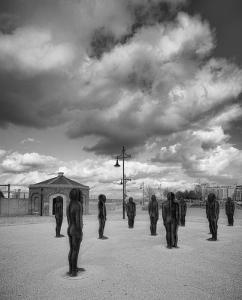 Stu Mayhew – Licence: CC BY-NC-ND 2.0“The Special Rapporteur calls upon States to recognise that the rights to freedom of peaceful assembly and of association can be exercised through new technologies, including through the Internet.”
Stu Mayhew – Licence: CC BY-NC-ND 2.0“The Special Rapporteur calls upon States to recognise that the rights to freedom of peaceful assembly and of association can be exercised through new technologies, including through the Internet.”
This recommendation is part of a recently released report in which the United Nations Special Rapporteur on the rights to freedom of peaceful assembly and of association, Maina Kiai, identifies information and communication technologies (ICTs) as a driving force behind this fundamental human right.
“This is great news from a Special Rapporteur who from the start of his mandate insisted on including multiple voices, among them civil society organisations,” says Joy Liddicoat of the Association for Progressive Communications (APC). “APC welcomes the inclusion of the internet in this report,” Liddicoat adds, in reference to the document tabled at the UN General Assembly on 21 May 2012.
“As an international network and non-profit organisation that believes the internet is a global public good, we would like to extend our congratulation to the Special Rapporteur on the rights to freedom of peaceful assembly and of association for this work,” emphasizes Anriette Esterhuysen, Executive director of APC.
Aside from the recommendation, the report made other statements related to ICTs and the internet in particular. “The Special Rapporteur notes the increased use of the Internet, in particular social media, and other information and communication technology, as basic tools which enable individuals to organise peaceful assemblies.”
APC salutes the report in which Kiai insists on the importance of ICTs and pleads in favour of guaranteeing citizens access to them. “Some States have clamped down on these tools to deter or prevent citizens from exercising their right. In this connection, the Special Rapporteur refers to a recent report of the Special Rapporteur on the promotion and protection of the right to freedom of opinion and expression, in which he recommended, inter alia, that ‘all States [should] ensure that Internet access is maintained at all times, including during times of political unrest’ (A/HRC/17/27, para. 79) and ‘any determination on what [website] content should be blocked must be undertaken by a competent judicial authority or a body which is independent of any political, commercial, or other unwarranted influences’ (para. 70).”
In a world where citizens are increasingly connected to the internet, assemblies are not only planned and organised online, assemblies can occur entirely online. Causes and protests do not always include people meeting physically anymore, they can effectively occur entirely online, often with as much impact as traditional forms of assembly.
Specifically on the freedom of association, the report underlines that “The word ‘association’ refers, inter alia, to civil society organizations, clubs, cooperatives, NGOs, religious associations, political parties, trade unions, foundations or even online associations as the Internet has been instrumental, for instance, in ‘facilitating active citizen participation in building democratic societies’ (A/HRC/17/27, para. 2).”
While the internet and ICTs offer new opportunities to exercise rights, they also have potential as new tools of repression. APC therefore further encourages the Special Rapporteur of the right to freedom of peaceful assembly to actively seek opportunities for collaboration with other special mandate holders on issues related to the internet. In particular, APC is thinking of the mandate holders on the right to freedom of expression, on violence against women, on the situation of human rights defenders, on the right to health and on the right to education. They should all take into account the importance of addressing the online aspects of their work collaboratively.
“This collaboration with other mandate holders shall, we hope, further even more the understanding of this human right online and increase awareness of the many examples worldwide in which this right is violated,” concluded Esterhuysen.
APC will be releasing more in-depth research in response to this report before the seventh annual Internet Governance Forum (IGF), taking place in Baku, Azerbaijan, from 6-9 November 2012.